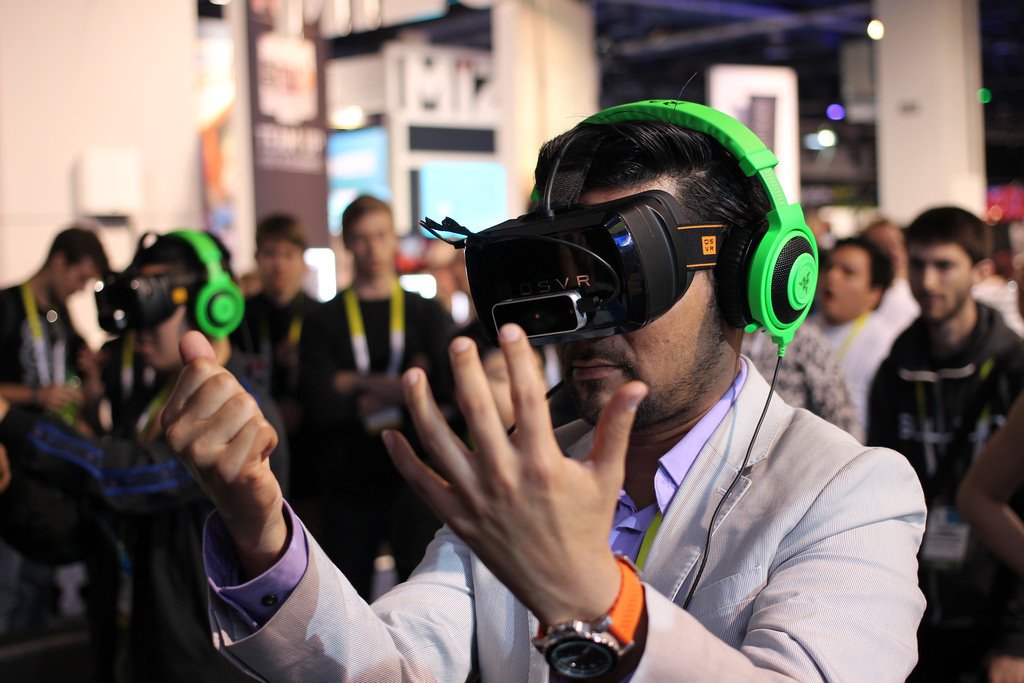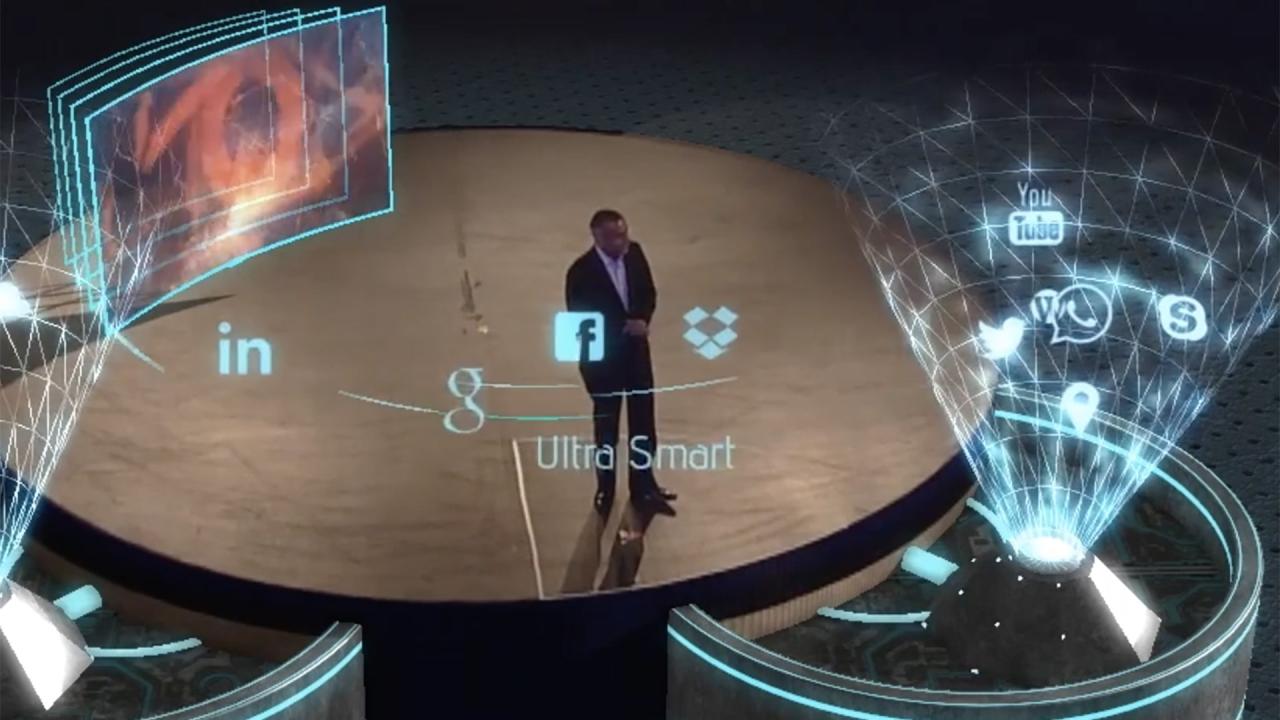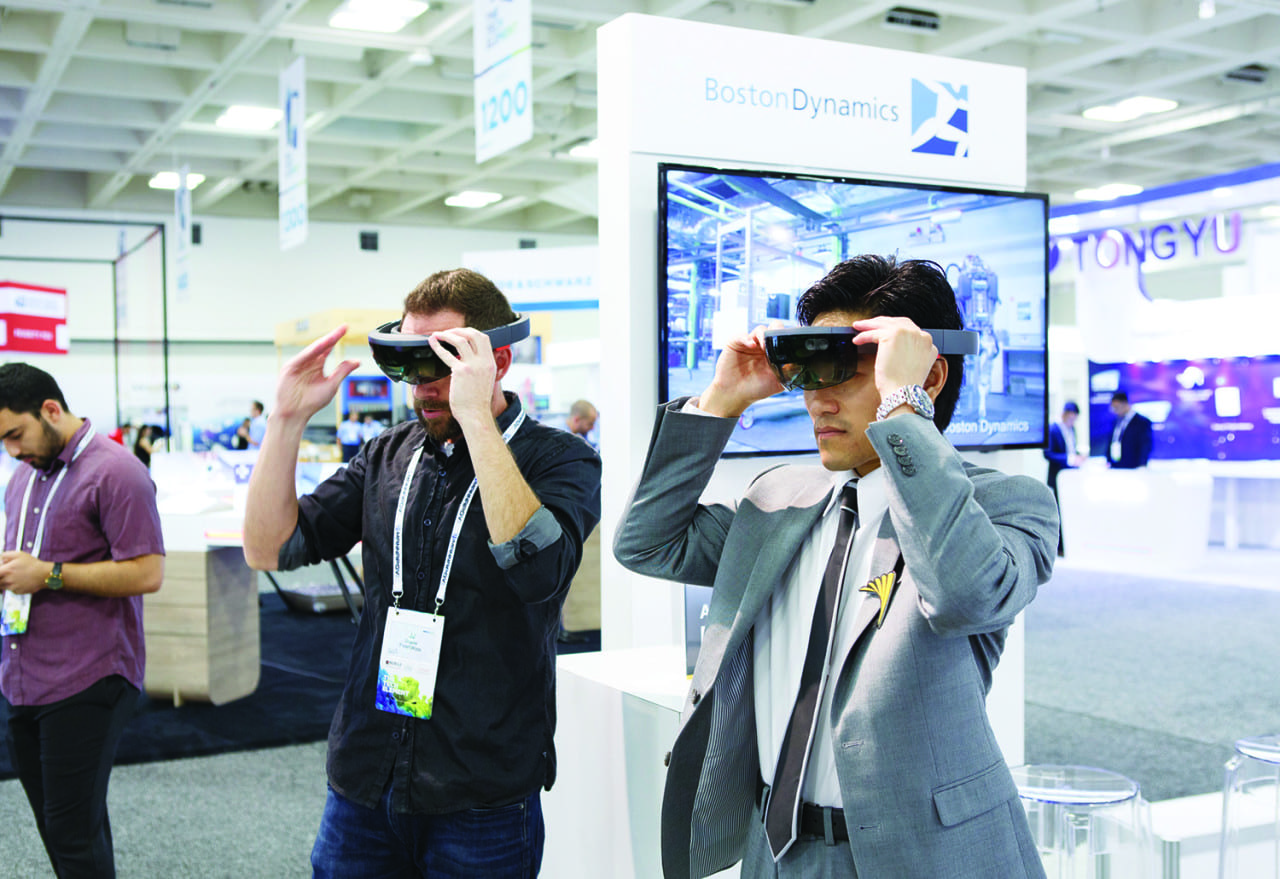Augmented Reality In Event Planning

Augmented Reality In Event Planning sets the stage for a revolutionary approach that transforms the way events are organized and experienced. By incorporating cutting-edge technology, this trend opens doors to endless possibilities for creating unforgettable moments.
As we delve deeper into the realm of augmented reality in event planning, we uncover a world where creativity and innovation converge to elevate the attendee experience to new heights.
Introduction to Augmented Reality in Event Planning

Augmented reality (AR) in event planning refers to the integration of digital information and virtual elements into the real-world environment to enhance the overall event experience. By overlaying computer-generated images onto the physical surroundings, AR technology enables event planners to create engaging and interactive experiences for attendees.
Enhancing Event Planning Experience
- AR allows event planners to visualize and design event layouts in a more immersive way, helping them make informed decisions about the placement of stages, booths, and seating arrangements.
- Attendees can use AR-enabled devices to access additional information about speakers, exhibitors, and schedule updates in real-time, enhancing their overall engagement and participation.
- Interactive AR experiences such as scavenger hunts, virtual tours, and photo filters can create memorable moments for attendees and increase the overall enjoyment of the event.
Current Uses of Augmented Reality in Event Planning
- Some events utilize AR technology for wayfinding, allowing attendees to navigate large venues more efficiently and locate specific areas of interest.
- AR photo booths are becoming increasingly popular, offering attendees the opportunity to take fun and interactive photos with virtual props and effects.
- Product demonstrations and virtual showcases using AR enhance the marketing efforts of exhibitors and sponsors, attracting more attention and generating buzz around their offerings.
Benefits of Using Augmented Reality in Event Planning

Augmented reality (AR) offers numerous advantages when incorporated into event planning, revolutionizing the way events are organized and executed. By seamlessly blending the physical and digital worlds, AR provides a unique and interactive experience for both event organizers and attendees.
Enhanced Visualization and Planning
AR allows event planners to visualize and plan every aspect of an event in a more immersive way. By overlaying digital elements onto the physical space, organizers can better understand how different setups, decorations, and layouts will look and feel in real-time. This leads to more efficient planning and helps in making informed decisions.
Interactive Attendee Experiences
One of the key benefits of using AR in event planning is the ability to enhance attendee engagement and interaction. Through AR-powered features such as virtual scavenger hunts, interactive maps, and 3D product demonstrations, attendees are provided with a more personalized and interactive experience. This not only increases attendee satisfaction but also encourages them to actively participate in the event.
Cost-Effective Solutions
Compared to traditional event planning methods that may involve costly physical setups and materials, incorporating AR can provide cost-effective solutions. For example, instead of printing large banners or signage, event organizers can use AR to display digital content and information, saving both money and resources. This can lead to significant cost savings while still delivering a memorable and engaging event experience.
Real-Time Data and Analytics
Another advantage of utilizing AR in event planning is the ability to gather real-time data and analytics. By tracking attendee interactions with AR features, event organizers can gain valuable insights into attendee preferences, behaviors, and engagement levels. This data can then be used to tailor future events, improve marketing strategies, and enhance overall event experiences.
Seamless Integration with Marketing Efforts
AR can seamlessly integrate with marketing efforts before, during, and after an event. By incorporating AR features into promotional materials, such as interactive invitations or pre-event teasers, organizers can generate buzz and excitement around the event. During the event, AR can be used to showcase sponsor advertisements, product demonstrations, and virtual tours, further enhancing brand visibility and engagement.
Implementing Augmented Reality in Event Design: Augmented Reality In Event Planning

Augmented reality technology has revolutionized the way events are planned and executed, offering a unique and interactive experience for attendees. Integrating augmented reality into event design requires careful planning and execution to ensure a seamless and engaging experience for all participants.
Creating Interactive and Immersive Experiences
- Utilize augmented reality to provide interactive maps and guides for event venues, allowing attendees to navigate the space easily.
- Create immersive augmented reality experiences by incorporating 3D models, animations, and interactive elements that engage attendees and enhance their overall event experience.
- Encourage attendees to interact with augmented reality elements through gamification, challenges, and rewards to make the event more dynamic and memorable.
Showcasing Event Venues and Setups
- Use augmented reality to showcase event venues in a virtual tour, allowing attendees to explore the space before the event and visualize the layout and setup.
- Provide interactive floor plans and seating arrangements through augmented reality, enabling attendees to choose their preferred locations and customize their event experience.
- Enhance the visual appeal of event setups by overlaying digital elements, such as decorations, lighting effects, and branding, through augmented reality to create a stunning and immersive environment.
Challenges and Considerations in Utilizing Augmented Reality for Events
Augmented reality offers numerous benefits in event planning, but it also comes with its own set of challenges that event planners need to address effectively.
Potential Challenges, Augmented Reality In Event Planning
- Lack of Technical Expertise: Implementing augmented reality requires specialized technical knowledge that event planners may not possess.
- Hardware Limitations: The need for specific hardware devices to support augmented reality experiences can be a barrier for some attendees.
- Connectivity Issues: Dependence on stable internet connectivity for augmented reality applications can pose challenges in venues with poor network coverage.
- User Adoption: Not all attendees may be familiar with augmented reality technology, leading to potential resistance or lack of engagement.
Strategies to Overcome Challenges
- Training and Education: Event planners can invest in training sessions or workshops to enhance their technical expertise or collaborate with experts in augmented reality.
- Providing Devices: Offering devices on-site or ensuring compatibility with a wide range of devices can help mitigate hardware limitations for attendees.
- Backup Plans: Having contingency plans in place for connectivity issues, such as offline modes or alternative activities, can prevent disruptions during the event.
- Engagement Campaigns: Creating pre-event marketing campaigns to educate attendees about augmented reality and build excitement can increase user adoption.
Cost Implications
Implementing augmented reality in event planning can come with significant cost implications, including expenses related to hardware, software development, and training. Event planners need to carefully assess their budget and prioritize investments based on the expected return on investment and the overall event experience. By exploring cost-effective solutions, leveraging partnerships, and aligning augmented reality initiatives with event objectives, planners can maximize the benefits of this technology while managing costs effectively.
FAQ Overview
How can augmented reality benefit event planning?
Augmented reality can enhance event planning by providing immersive experiences, increasing attendee engagement, and showcasing event venues effectively.
What challenges might event planners face when implementing augmented reality?
Event planners may encounter challenges such as high costs, technical complexities, and the need for specialized expertise when integrating augmented reality into their events.